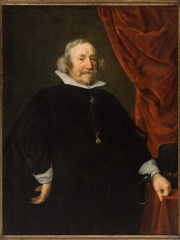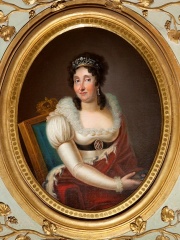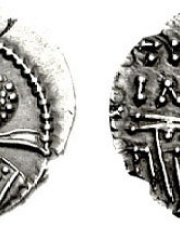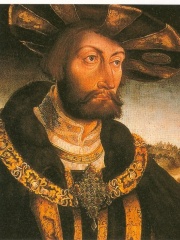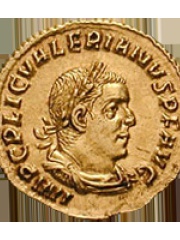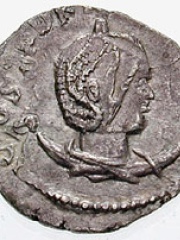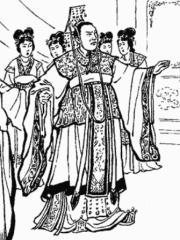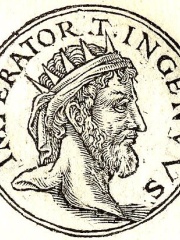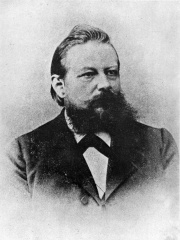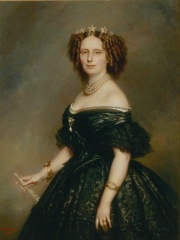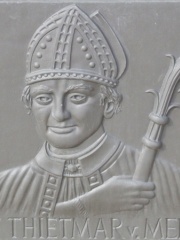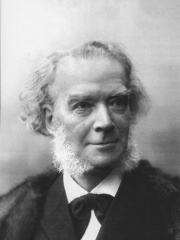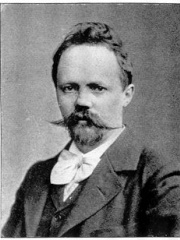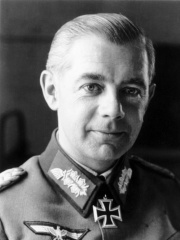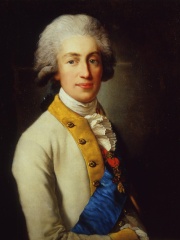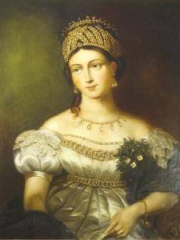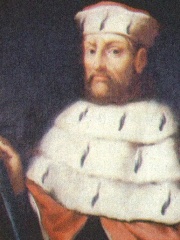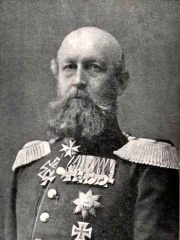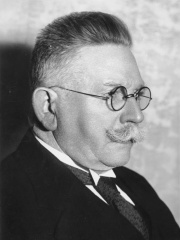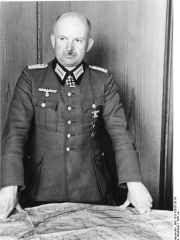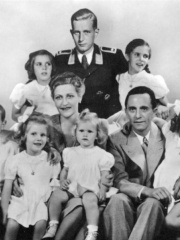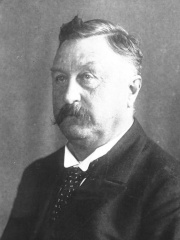Politician
Saloninus
242 - 260
EN.WIKIPEDIA PAGE VIEWS (PV)
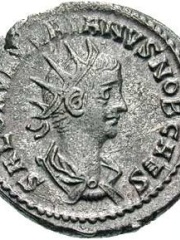
 Saloninus
Saloninus
Publius Licinius Cornelius Saloninus Valerianus (died 260), typically just called Saloninus, was a young Roman nobleman who briefly became emperor in 260. The grandson of Valerian I, Saloninus was appointed caesar (heir) in 258 in an attempt to shore up the Licinian line of succession during the Crisis of the Third Century. During his time in power, Saloninus administered the German marches out of Cologne. Nevertheless, Saloninus soon became embroiled in a dispute with future Gallic emperor Postumus over war spoils. Read more on Wikipedia
His biography is available in 46 different languages on Wikipedia. Saloninus is the 3,378th most popular politician (down from 3,298th in 2024), the 878th most popular biography from Germany (up from 889th in 2019) and the 252nd most popular German Politician.
Saloninus was most famous for being the son of Gallienus, the Roman emperor. He was also a Roman general and a senator.
Memorability Metrics
Page views of Saloninus by language
Among Politicians
Among politicians, Saloninus ranks 3,378 out of 19,576. Before him are Abdel Aziz al-Rantisi, Wolfgang Wilhelm, Count Palatine of Neuburg, George Papandreou, C. Odumegwu Ojukwu, Maria Theresa of Austria-Este, Queen of Sardinia, and Henry II, Duke of Austria. After him are Mike Johnson, Andreas Papandreou, Ramon Berenguer IV, Count of Barcelona, Vologases V, William IV, Duke of Bavaria, and Bidzina Ivanishvili.
Most Popular Politicians in Wikipedia
Go to all RankingsAbdel Aziz al-Rantisi
1947 - 2004
HPI: 68.97
Rank: 3,374
Wolfgang Wilhelm, Count Palatine of Neuburg
1578 - 1653
HPI: 68.97
Rank: 3,375
George Papandreou
1952 - Present
HPI: 68.97
Rank: 3,376
C. Odumegwu Ojukwu
1933 - 2011
HPI: 68.97
Rank: 3,377
Maria Theresa of Austria-Este, Queen of Sardinia
1773 - 1832
HPI: 68.97
Rank: 3,378
Henry II, Duke of Austria
1107 - 1177
HPI: 68.97
Rank: 3,379
Saloninus
242 - 260
HPI: 68.96
Rank: 3,380
Mike Johnson
1972 - Present
HPI: 68.96
Rank: 3,381
Andreas Papandreou
1919 - 1996
HPI: 68.96
Rank: 3,382
Ramon Berenguer IV, Count of Barcelona
1114 - 1162
HPI: 68.96
Rank: 3,383
Vologases V
130 - 208
HPI: 68.96
Rank: 3,384
William IV, Duke of Bavaria
1493 - 1550
HPI: 68.96
Rank: 3,385
Bidzina Ivanishvili
1956 - Present
HPI: 68.95
Rank: 3,386
Contemporaries
Among people born in 242, Saloninus ranks 1. After him is Sopater of Apamea. Among people deceased in 260, Saloninus ranks 3. Before him are Valerian, and Regalianus. After him are Cao Mao, Marcus Minucius Felix, Sun Liang, and Ingenuus.
Others Born in 242
Go to all RankingsOthers Deceased in 260
Go to all RankingsValerian
POLITICIAN
200 - 260
HPI: 77.94
Rank: 1
Regalianus
POLITICIAN
250 - 260
HPI: 69.20
Rank: 2
Saloninus
POLITICIAN
242 - 260
HPI: 68.96
Rank: 3
Cao Mao
POLITICIAN
241 - 260
HPI: 67.37
Rank: 4
Marcus Minucius Felix
WRITER
110 - 260
HPI: 67.16
Rank: 5
Sun Liang
POLITICIAN
243 - 260
HPI: 66.24
Rank: 6
Ingenuus
POLITICIAN
200 - 260
HPI: 63.50
Rank: 7
In Germany
Among people born in Germany, Saloninus ranks 878 out of NaN. Before him are Wilhelm Windelband (1848), Volker Schlöndorff (1939), Sophie of Württemberg (1818), Wolfgang Wilhelm, Count Palatine of Neuburg (1578), Henry II, Duke of Austria (1107), and Thietmar of Merseburg (975). After him are William IV, Duke of Bavaria (1493), Margot Frank (1926), Carl Reinecke (1824), Engelbert Humperdinck (1854), Birutė Galdikas (1946), and Walther Wenck (1900).
Others born in Germany
Go to all RankingsWilhelm Windelband
PHILOSOPHER
1848 - 1915
HPI: 68.99
Rank: 872
Volker Schlöndorff
FILM DIRECTOR
1939 - Present
HPI: 68.98
Rank: 873
Sophie of Württemberg
COMPANION
1818 - 1877
HPI: 68.98
Rank: 874
Wolfgang Wilhelm, Count Palatine of Neuburg
POLITICIAN
1578 - 1653
HPI: 68.97
Rank: 875
Henry II, Duke of Austria
POLITICIAN
1107 - 1177
HPI: 68.97
Rank: 876
Thietmar of Merseburg
WRITER
975 - 1018
HPI: 68.97
Rank: 877
Saloninus
POLITICIAN
242 - 260
HPI: 68.96
Rank: 878
William IV, Duke of Bavaria
POLITICIAN
1493 - 1550
HPI: 68.96
Rank: 879
Margot Frank
RELIGIOUS FIGURE
1926 - 1945
HPI: 68.95
Rank: 880
Carl Reinecke
COMPOSER
1824 - 1910
HPI: 68.95
Rank: 881
Engelbert Humperdinck
COMPOSER
1854 - 1921
HPI: 68.91
Rank: 882
Birutė Galdikas
ANTHROPOLOGIST
1946 - Present
HPI: 68.91
Rank: 883
Walther Wenck
MILITARY PERSONNEL
1900 - 1982
HPI: 68.90
Rank: 884
Among Politicians In Germany
Among politicians born in Germany, Saloninus ranks 252. Before him are Maximilian, Hereditary Prince of Saxony (1759), Princess Louise of Saxe-Gotha-Altenburg (1800), Otto II, Duke of Bavaria (1206), Frederick Francis II, Grand Duke of Mecklenburg-Schwerin (1823), Wolfgang Wilhelm, Count Palatine of Neuburg (1578), and Henry II, Duke of Austria (1107). After him are William IV, Duke of Bavaria (1493), Alfred Hugenberg (1865), Kurt Zeitzler (1895), Hedwig Eleonora of Holstein-Gottorp (1636), Harald Quandt (1921), and Constantin Fehrenbach (1852).
Maximilian, Hereditary Prince of Saxony
1759 - 1838
HPI: 69.15
Rank: 246
Princess Louise of Saxe-Gotha-Altenburg
1800 - 1831
HPI: 69.14
Rank: 247
Otto II, Duke of Bavaria
1206 - 1253
HPI: 69.09
Rank: 248
Frederick Francis II, Grand Duke of Mecklenburg-Schwerin
1823 - 1883
HPI: 69.08
Rank: 249
Wolfgang Wilhelm, Count Palatine of Neuburg
1578 - 1653
HPI: 68.97
Rank: 250
Henry II, Duke of Austria
1107 - 1177
HPI: 68.97
Rank: 251
Saloninus
242 - 260
HPI: 68.96
Rank: 252
William IV, Duke of Bavaria
1493 - 1550
HPI: 68.96
Rank: 253
Alfred Hugenberg
1865 - 1951
HPI: 68.90
Rank: 254
Kurt Zeitzler
1895 - 1963
HPI: 68.86
Rank: 255
Hedwig Eleonora of Holstein-Gottorp
1636 - 1715
HPI: 68.82
Rank: 256
Harald Quandt
1921 - 1967
HPI: 68.81
Rank: 257
Constantin Fehrenbach
1852 - 1926
HPI: 68.75
Rank: 258

